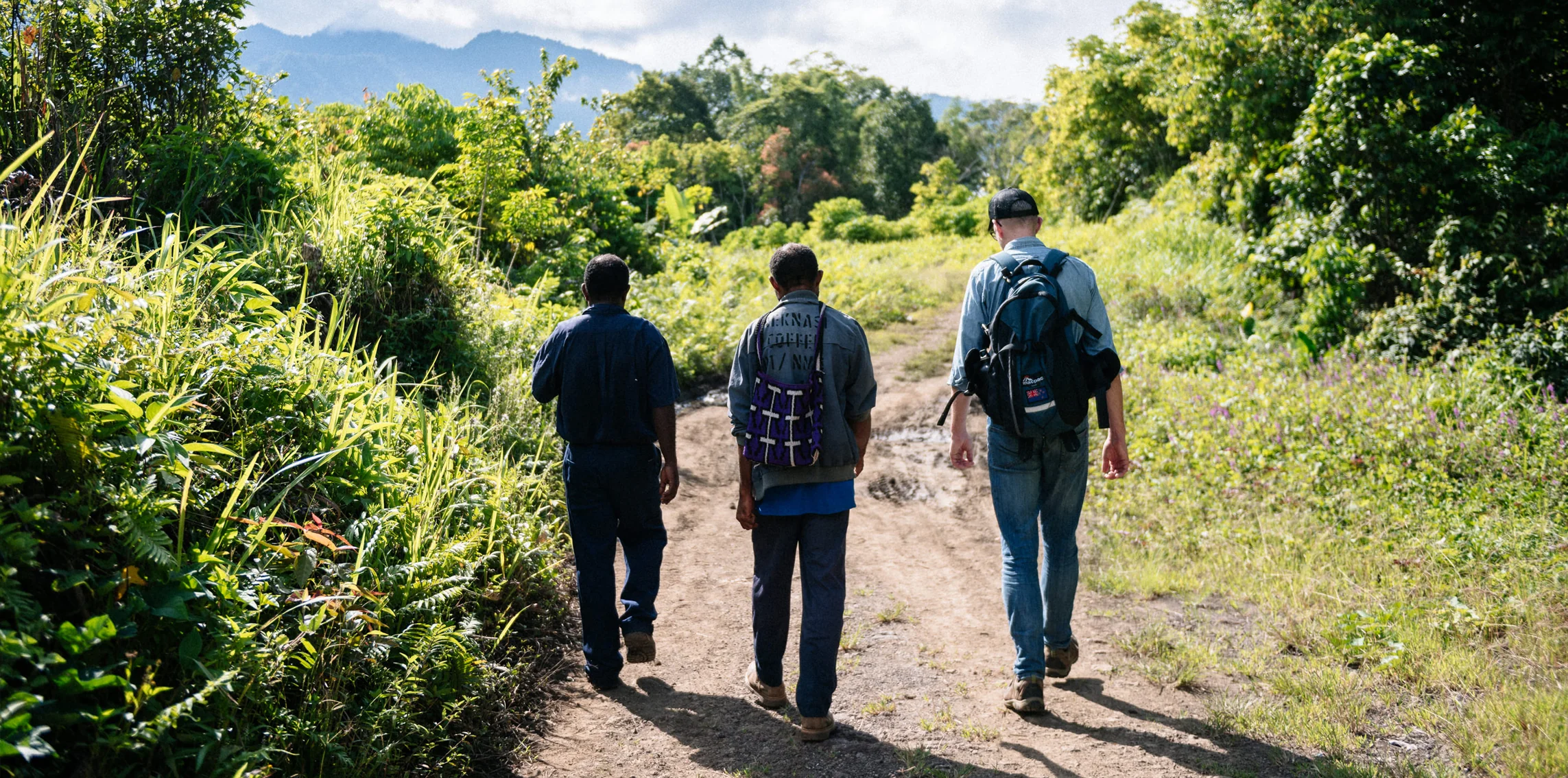Mike Murphy has been at the heart of Kōkako for over 17 years, guiding the specialty coffee brand with a deep commitment to sustainability, quality, and integrity. Known for his values-driven leadership, Mike has played a pivotal role in building Kōkako into a renowned business, all while championing Fairtrade and organic practices. As Mike now moves on to his next adventure, we sat down with him to reflect on this big chapter. His journey with Kōkako is one of growth, innovation, and making a tangible impact, both locally and globally. At Fairtrade, we have been deeply touched and inspired by working alongside Mike. Though it’s a farewell for now, it’s not goodbye—ma te wā.
“Ma te wā” is a phrase in te reo Māori that expresses a heartfelt “until we meet again,” conveying a sense of connection and future reunion rather than a final goodbye.
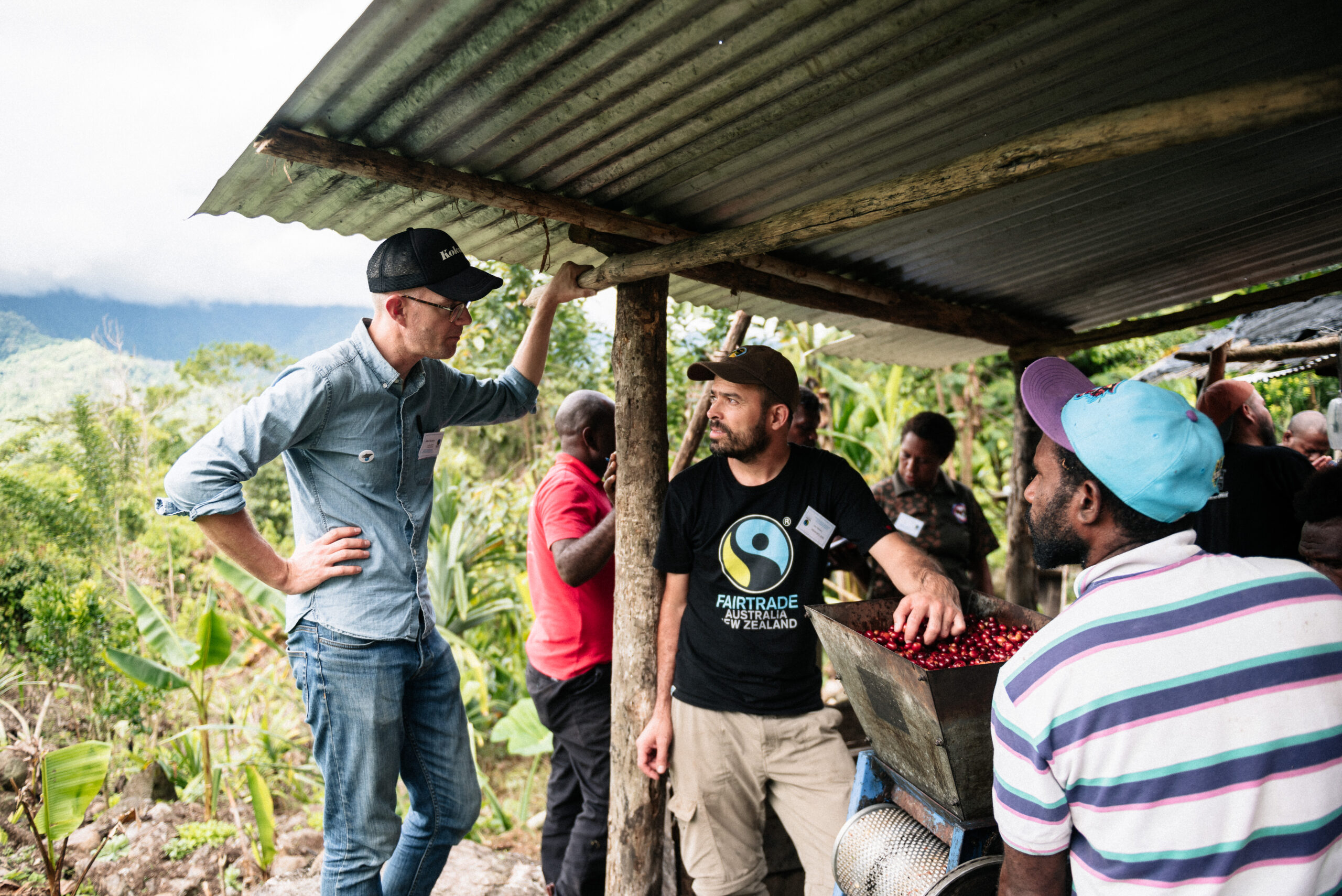
The news has been shared that you are moving on from Kōkako. How did you know now was the right time for you to make this decision? How has the last couple of months been for you?
I’ve always seen myself as more of a guardian of the Kōkako brand rather than an owner. Whenever I do anything I like to give it 100% of my time, energy and passion. I’ve invested all of that and more into Kōkako for a considerable amount of time (17+ years!), and after this time period I felt like there wasn’t much more value I could add to the brand. Along with a passionate team of talented people, I’m proud to have guided Kōkako from a six year old business to a sustainably focused specialty coffee brand that is now 23 years old.
Depending on the age and stage of every business, they need different ideas, leadership and investment, and I felt that the best thing I could do to help Kōkako flourish into the future was to step aside and allow new leaders to pick up where I’m leaving off.
The last couple of months have been busy; handing over to the new owners, who remain committed to our values and are also NZ owned, and closing this chapter for the business and for me personally.

Do you remember the day you decided to buy Kōkako? What did it feel like?!
Yes; I am a bit old school and like to read the newspaper. I saw an advert for a business that read “Café and catering – multiple income streams; café, coffee roasting and catering”. I enquired and within a month I owned a little coffee business called Kōkako!
I remember the day I took over Kōkako – it was May 2007. At that stage we operated out of a small café from 492 Parnell Road in Auckland with a little red Toper Roaster shoe-horned into the kitchen next to the hot-line. Because we had to move coffee sacks around, I had to roast coffee after the café closed, so I was often there late at night, surviving on spring rolls for dinner from Al & Pete’s next door.
At the end of my first day, I went to open the safe to put away the day’s takings and ended up smacking my head on a metal beam above it. I’ve never really learnt my lesson, which is to slow down a bit. The owner of that same cafe, Steven Wen, still proudly serves Kōkako Organic Coffee from the café there, and it’s now known as Domain and Ayr.

Looking back to the years at Kōkako, do you have an absolute stand out/defining moment when you knew you were creating something special and different?
I think there have been lots of moments over the last 17 years that have all combined to make the brand very special. This includes proving to our peers that you can be a values-led business of scale. I think a few of our competitors didn’t think we could build a sustainable coffee brand of scale, and that made me more determined to prove them wrong.
Building community is a huge thing for me; we did that at Parnell, then in Grey Lynn when we took over the old Post Office site, and in the last 4 years we’ve done it at Commercial Bay in Auckland.
Having the opportunity to travel to Papua New Guinea with Fairtrade on my first origin trip really reinforced to me the power of Fairtrade. Being able to hear producer stories first-hand, build enduring relationships with coffee farmers, harvest coffee and understand all of the processing methods that coffee goes through before export allowed me to be able to communicate this work to our customers and team. I think one of the most important roles we have as a coffee roaster is to be a good storyteller, showcasing how coffee is a product of people and many hands, not a commodity.

What was the most important thing for you when growing the Kōkako brand?
Integrity and quality. Doing the right thing for our people, customers and supply chain is incredibly important; whether that’s ensuring we are third-party verified by Fairtrade or Biogro, making good procurement decisions and showing leadership in how we run our business or being transparent about what we get right and what we need to work on with our two-yearly sustainability reports. All those things matter.
Choosing great quality coffee is also incredibly important. As a specialty coffee brand we’ve built a team of talented coffee professionals who know how to choose the best coffees, whether it’s a coffee for one of our blends, or a new single origin natural process coffee – if the quality isn’t in the cup we won’t sell it.
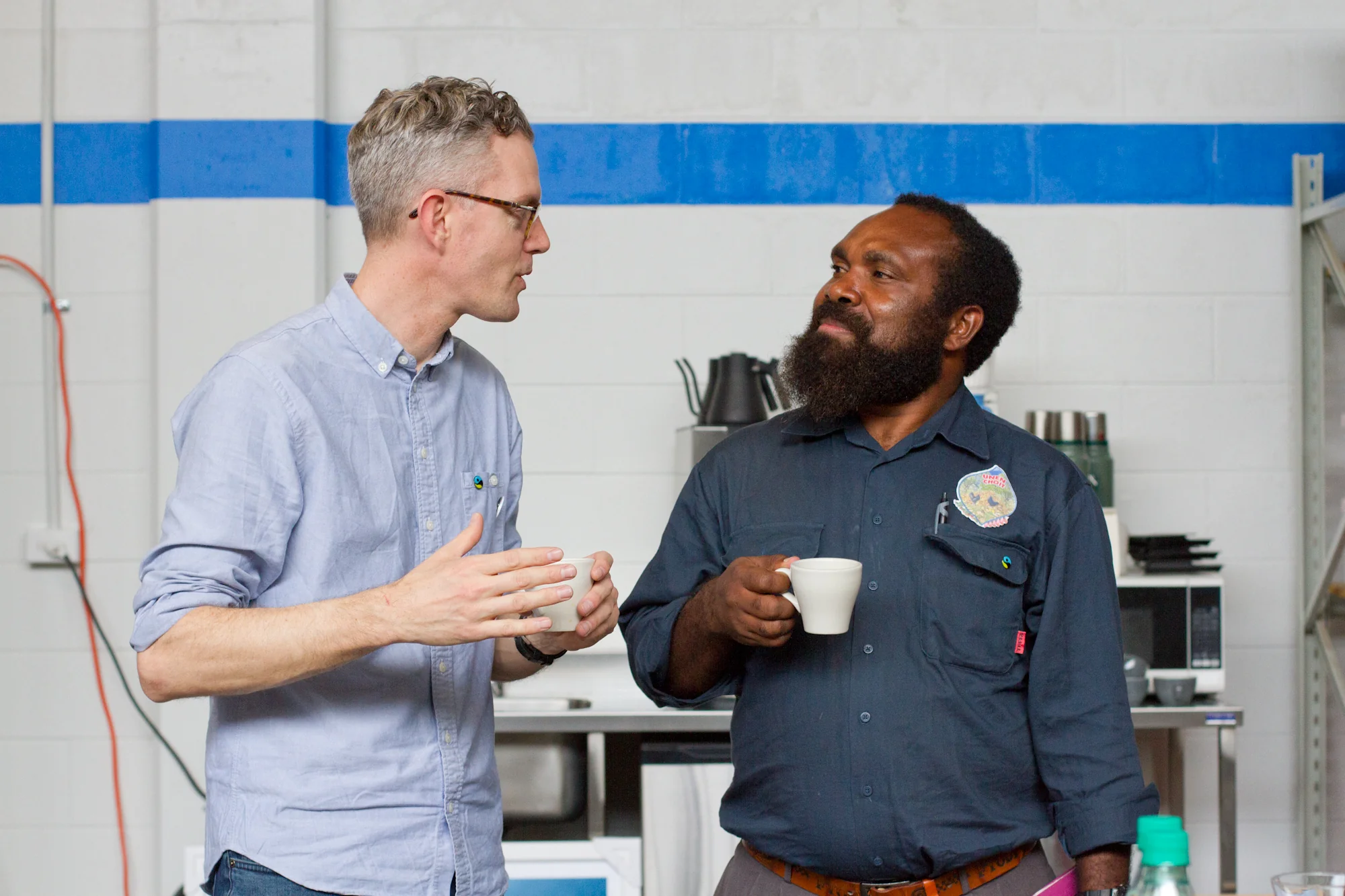
With Kōkako what were your sustainability priorities at the beginning and how have they changed over time?
At the beginning it was a steep learning curve for me. I’d studied social and natural geography at University but hadn’t ever been able to apply it in a commercial setting. Getting certified with Fairtrade and Biogro helped educate me on the importance of having a third-party verification, and a deeper understanding as to the social and environmental benefits of being 100% Organic and Fairtrade.
In the earlier years of owning the business climate change wasn’t really talked about in business, but of course now it’s at a critical stage. Seeing first-hand the impact at origin to coffee harvests and pests such as coffee borer beetle made me realise that a warming planet was directly impacting the coffee we source and the livelihoods of the farmers who grow it. We became certified with the Fairtrade-affiliated Fair Climate Fund in 2016 and started offsetting the unavoidable carbon produced in our supply chain, from the farm right through to the finished product. Going forward, I’d like to see more businesses looking at how they can combine carbon insetting with carbon offsetting, as I think there are a lot of efficiencies and wins we can create on the ground here in Aotearoa within our businesses.
We’ve taken a thought-leadership position on sustainable business, and have tried to look at every facet of what we do linked to various United Nations Sustainable Development Goals, with the aim of influencing others in our sector and other parts of the business community to integrate sustainability into their operations. I’m proud to say I think we have inspired and influenced others!
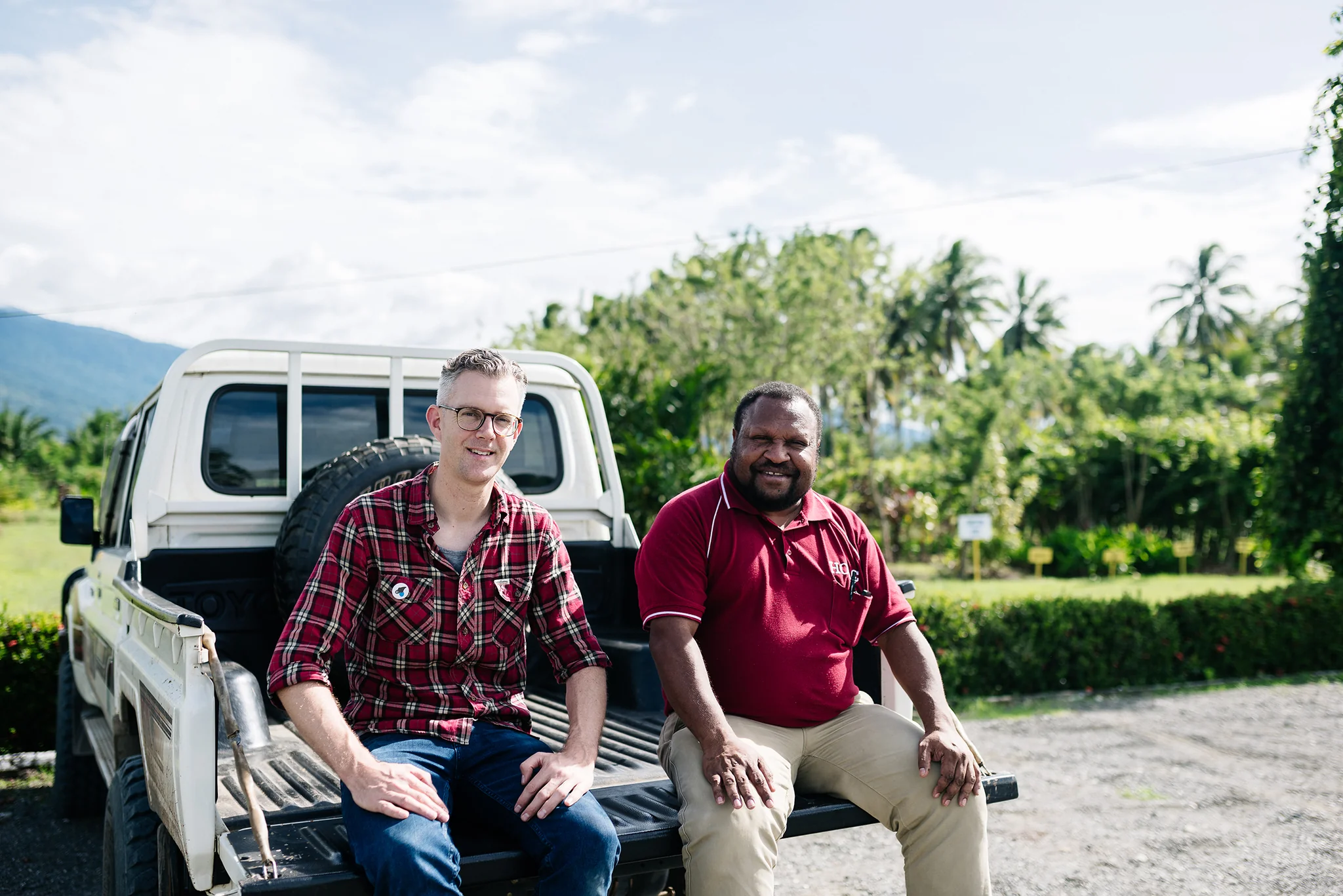
Reflecting on your time at Kōkako – what role has Fairtrade played on your journey? Do you have a favourite memory from the trips to the origin that you’d like to share?
It’s been massive! As I’ve mentioned, the ability to build long-standing partnerships with coffee producers, which has been facilitated by Fairtrade. Between myself and various members of the Kōkako team we’ve been fortunate to travel to Papua New Guinea with various team members from Fairtrade, and this has allowed us to tell much deeper stories around coffee and community.
One of the highlights for me was being able to meet one of the founders of the Highlands Organic Agriculture Cooperative (HOAC) in the Eastern Highlands Papua New Guinea, Papa Kinne. We took a sample roaster up into the Highlands, gathered together different farmers and clusters of coffee, roasted them and cupped them with the farmers. None of them had ever tried their own coffee, and I got to teach Papa Kinne how to brew coffee on an Aeropress. Sadly, he has now passed away, but I have been able to build a strong relationship with his son Daniel and Daniels nephew Mitchell who are instrumental in driving the HOAC cooperative forward.
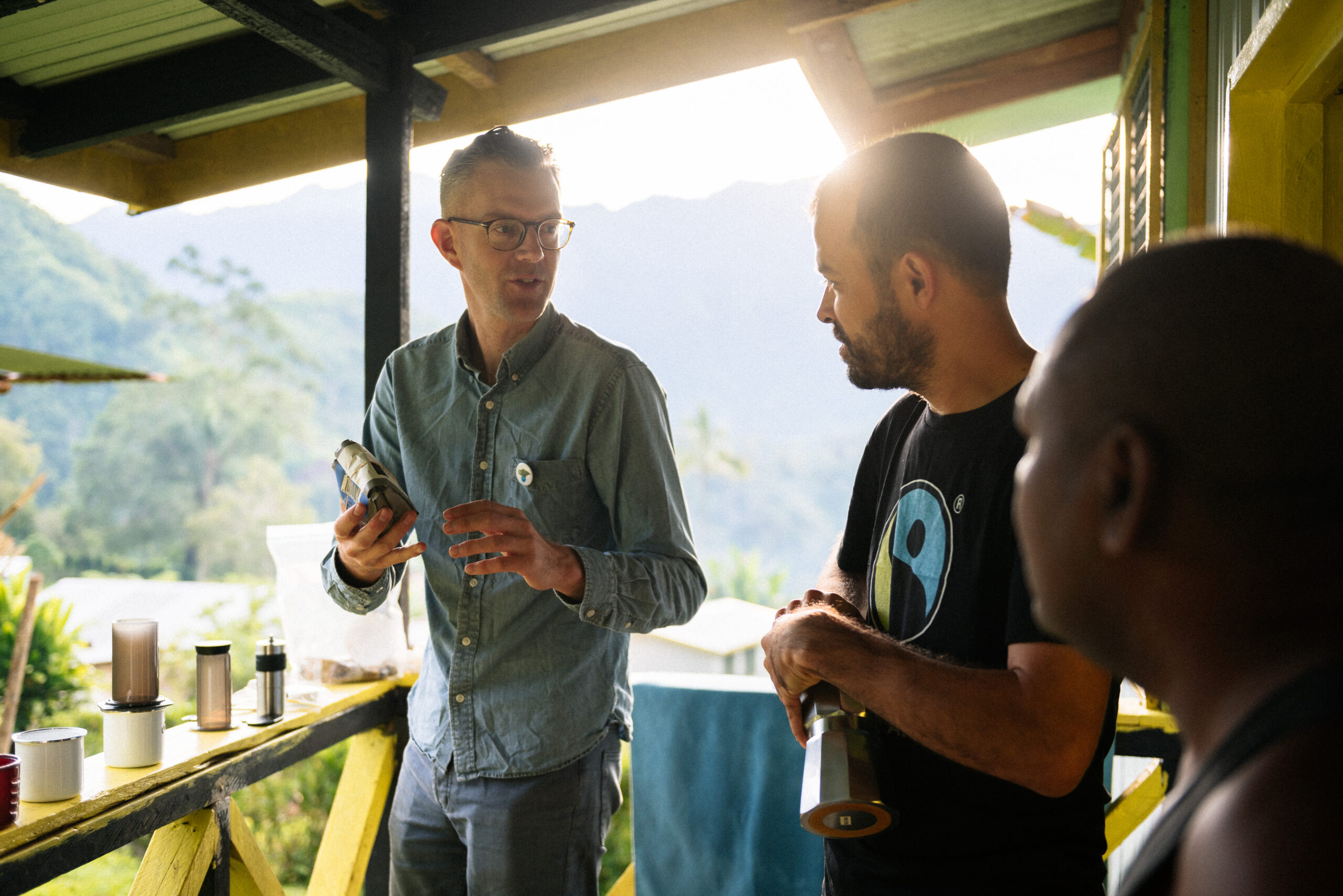
We asked you about your (and Kōkako’s) sustainability priorities in the past – what are they going to be in the future – for yourself but also in general. What do you think is the next big thing in sustainability?
That’s a big question, and perhaps not everyone who reads this will agree with me, but I think we need to take stock of where we’re at and what impact we are having on the planet. We have an obligation, individually and as business leaders, to build a more sustainable future, but this requires urgency and some tough conversations. Business is traditionally about growth and an obsessive focus on the bottom line. But business can also be a compelling force for good.
We need to re-frame how we look at growth, and check that it’s not just growth for growths sake. Is it financially, social and environmentally sustainable? Does it allow us to take a Te ao Māori world view, where relationships and nature are valued as much as financial growth?
How can we stop accumulating so much stuff, which invariably ends up in landfill or in a wish-cycling scenario, where no one knows what do with it at end of life? We’ve all heard of the circular economy, but how can we build a resilient circular economy that puts Aotearoa at the forefront of innovation in this space? There are a lot of individuals and businesses already showing leadership, but we should be encouraging and incentivising a holistic and sustainable approach more than we are now.
If you know and don’t mind sharing what are your plans for the future?
Great question! I have no plans yet; a little trip around the motu is first on the list. I’m most inspired when I’m in nature, and I’m pretty keen to play a role in the future of driving and implementing sustainable change that equally values people, planet and prosperity. Watch this space…
